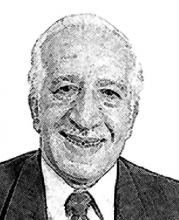You are here
Daesh is not invincible
May 21,2016 - Last updated at May 21,2016
The recapture of the Iraqi town of Rutba by government forces gives two strong indications: that Daesh is not invincible; that the Iraqi military knows how to win a battle when it is determined, without having to use ragtag militias like Badr Brigade, Asaaib Al Haq, Jeish Al Mahdi, or groups of bloodthirsty Shiite criminals who are used to pillaging and raping, as their raids on Falluja and Tikrit have shown.
It was the advice of General Qassem Suleimani of the Iranian Revolutionary Guards, when he took part in the war effort a year ago, not to defeat Daesh then, as it forms a rallying point for all militia factions to unite against one common Sunni enemy.
The continued presence of Daesh, according to Suleimani, is a golden opportunity to milk Washington of more sophisticated military hardware, security cooperation and political support.
When two Arab capitals offered to send troops to Iraq to fight Daesh, Suleimani flew to Najaf to have a long meeting with Grand Ayatollah Ali Al Husseini Al Sistani, after which a religious edict was issued against having non-Iraqi soldiers on “our country’s soil”.
Daesh is used to serve the domestic interests of the Shiite party Al Dawa against other contestants.
Former prime minister Nouri Al Maliki and the current one Haider Al Abadi are top leaders of the pro-Iran Shiite Dawa party, which monopolised authority, despite the presence of other equally influential parties.
It is for this reason that last week witnessed hundreds of thousands of followers of Muqtada Sadr stage demonstrations in Baghdad against the corruption of the ruling group in government positions.
Live bullets were shot at demonstrators and some were killed.
Maliki, waged a systematic sectarian campaign against all Iraqi Sunnis, depriving some of their jobs, accusing others of being former Baath Party members, arresting yet others on false charges of having been Saddam Hussein’s elite special forces.
Prior to Dawa Party rule in Baghdad, Daesh, in its older version, had no more than 400 members who survived the two main wars against them in Kurdistan and Falluja.
But following the systematic persecution and marginalisation of all Sunnis, Abu Bakr Al Baghdadi and his Shura council welcomed the recruitment of former Baath Party members, as well as Saddam’s former Republican Guards generals who now hold key commanding positions in Daesh as advisers on military and economic guerrilla warfare tactics and psychological operations techniques.
The geostrategic location of Rutba provided an economic artery to Jordan, since the Amman-Baghdad main highway had to run through that small city.
By recapturing Rutba, the myth that Daesh is invincible will be shattered.











